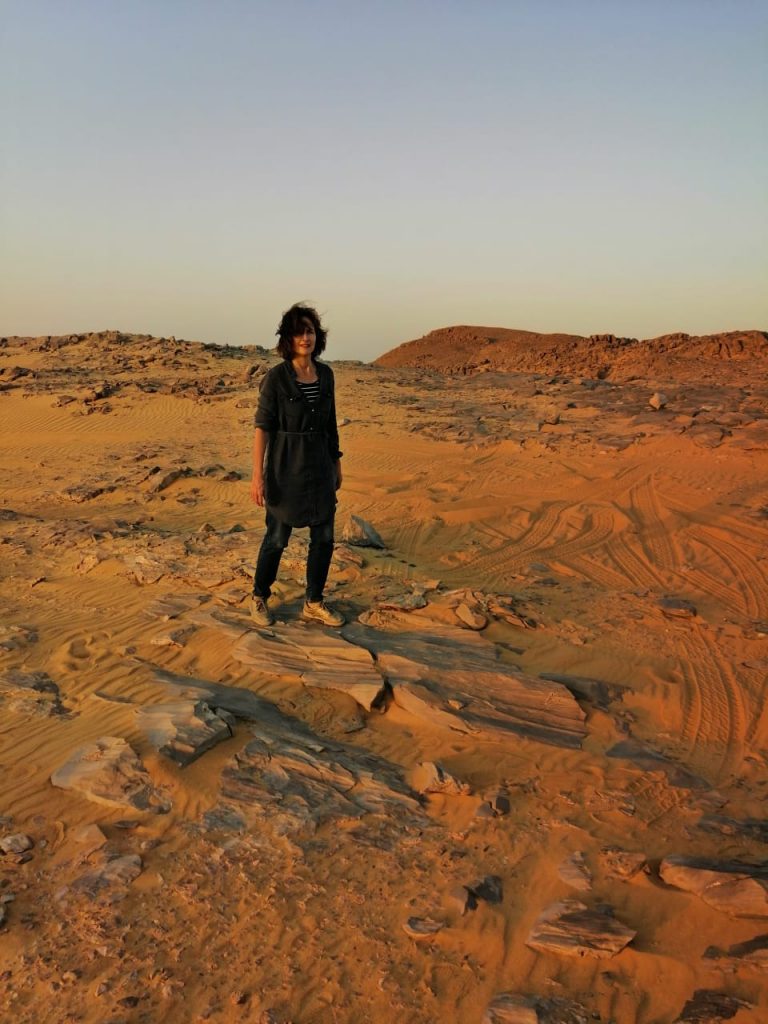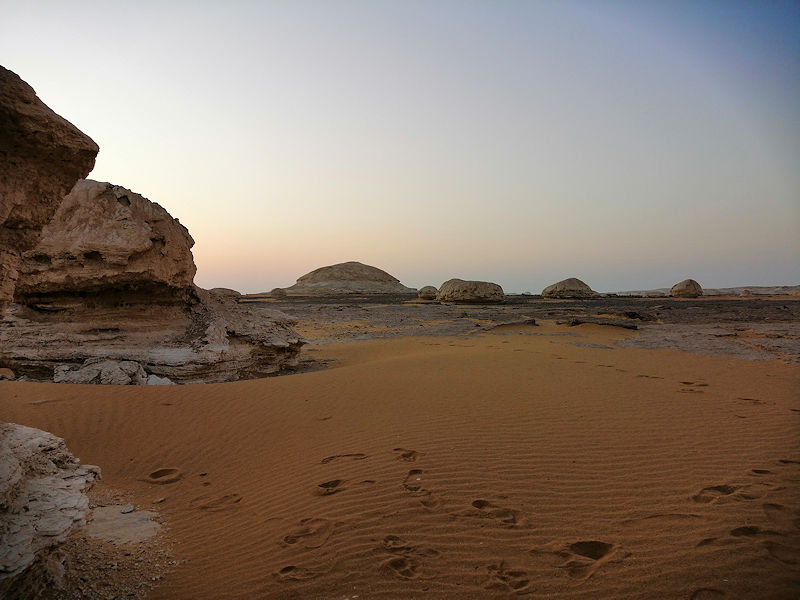In time or out of time
by Pamela Kribbe
Whenever I arrive in Egypt, in about one day I lose track of time. I forget how many days have passed and I thoughtlessly flow with whatever happens in the moment. My western mind, always in planning mode, mysteriously comes to a halt. A strange resistance comes over me to think ahead, really to focus at all, and I become more aware of my body’s sensations. The sun on my skin, the bright colors all around, the strong taste of the fresh food, the chatter of a casual meeting in the street. My mind gets enraptured by the present.
There is a philosophical distinction between clock time and lived time. Clock time is mechanical, it can be measured by a watch and is not affected by our subjective experience of it. Lived time (also called psychological time) is time as experienced by the observer…we all know how ten minutes waiting in a queue can feel like forever whereas ten minutes calling with a loved one seems to flash by in a second. Lived time is flexible and flowing like….life.
In the West, our lives have become so adapted to clock time, that we hardly feel the pulse of lived time anymore. We have fixed hours for meals, appointments, parties, and we measure time like it is a fixed quantity that we have to carefully divide and manage. Bye bye to spontaneity.
In Egypt, and probably the whole of the Middle East, life is not ruled by clock time but by lived time. People move and act according to a rhythm that may seem elusive to the western mind. The pace of life is slower, more intuitive and erratic, and it will surely get on your nerve when you are of the punctual, control freaky kind.
From my western perspective, people in Egypt are sloppy with appointments, planning ahead and organising time. Everything seems to have to happen either Now or “in the distant future”. Decisions are often made last minute, and plans are changed often, so it’s better not to look too far ahead. Although I occasionally feel annoyed by this seeming lack of skill to manage (clock) time, it also touches me and I feel charmed by it. When things don’t go as planned or take a completely different turn I always wonder what is really behind the confusion and chaos. Usually, I sense there is a kind of logic behind the behaviour involved, and it’s not just carelessness or laziness. There may be unexpressed feelings, which sabotage an agreement or appointment, and because in this culture it is not done to express feelings in a direct way, they are expressed indirectly or tacitly. Also, life in Egypt is far more chaotic than we are used to in the West (try crossing a major road in the city) and it seems there are always countless distractions and ‘accidents’ which come between a person and their intended goal for the day.

But apart from these psychological explanations, it seems to me that, philosophically speaking, in Egypt the present or the Now has a pull on life so strong that the laws of clock time will just fall apart under its pressure. By the Now I don’t mean ‘this very second ticking away on your clock’, I don’t mean mechanical time; rather I mean the living sense of the Present which puts a spotlight on what is here and now. What is here and now, whether it is a situation or a feeling, fills the space of consciousness and whether it’s good or bad, other concerns just fade away. For some reason, this happens more easily within the collective atmosphere of the Middle East than in the West. And although it inevitably leads to confusion, it does seem to me there’s an underlying truth to this surrender to lived time.
For me, there is something deeply relaxing and soothing about giving up on clock time. Life is not mechanical, our bodies are not machines, nor are our emotions and moods. Is it really that bad to live more from a sense of ‘what feels good to do now’? Yep, it’s not a great career guide and the rational mind is a useful tool, but I do feel in the West we are suffering from a kind of compulsive control disorder, which clearly manifests in our obsession to meticulously organise time (i.e. life). I notice how letting go of that brings me back to a childlike state of ‘just going with the flow’ and how remarkably liberating that is.
My impression is that people in Egypt are still more in touch with the natural rhythms of the earth. Modernization and technology have made their entrance relatively recently and have not yet been entrenched so deeply. One senses the roots of another, age old culture, based more on the rhythms of the land, the cycles of moon and sun, and of prayer, fasting and celebrating. People are more ‘out of their heads’, and therefore more ‘out of time’.
All this is supported and enhanced by Egypt’s natural geography: for over 90% it consists of desert. Beautiful, empty, magical, endless desert. If you spend only a few days wandering through these vast planes of mere rock and sand, you get a sense of the timeless. It is like the dimension of the human, rooted in time, touches the dimension of the divine, out of time. The stillness of the desert is like the breath of a gentle goddess: she smiles at our plans but reminds us we are like babies, carried in the arms of giants. The giants are the forces of nature, with its cycles and rhythms, which speak to us through our bodies and senses.
Ultimately, we are governed by laws outside time. The desert, where even the liveliness of the animal and plant kingdom dwindles and makes room for the quiet presence of rocks and mountains with age old life spans, opens a gate to the timeless. We sense a quiet magic there which to the open minded and, maybe, the broken hearted, reminds us of Home, the divine dwelling place of our souls.
Egypt, both through its nature and it culture, is a portal to the eternal. Through its landscapes and its people, it reminds us: we cannot control life…and that’s okay.
